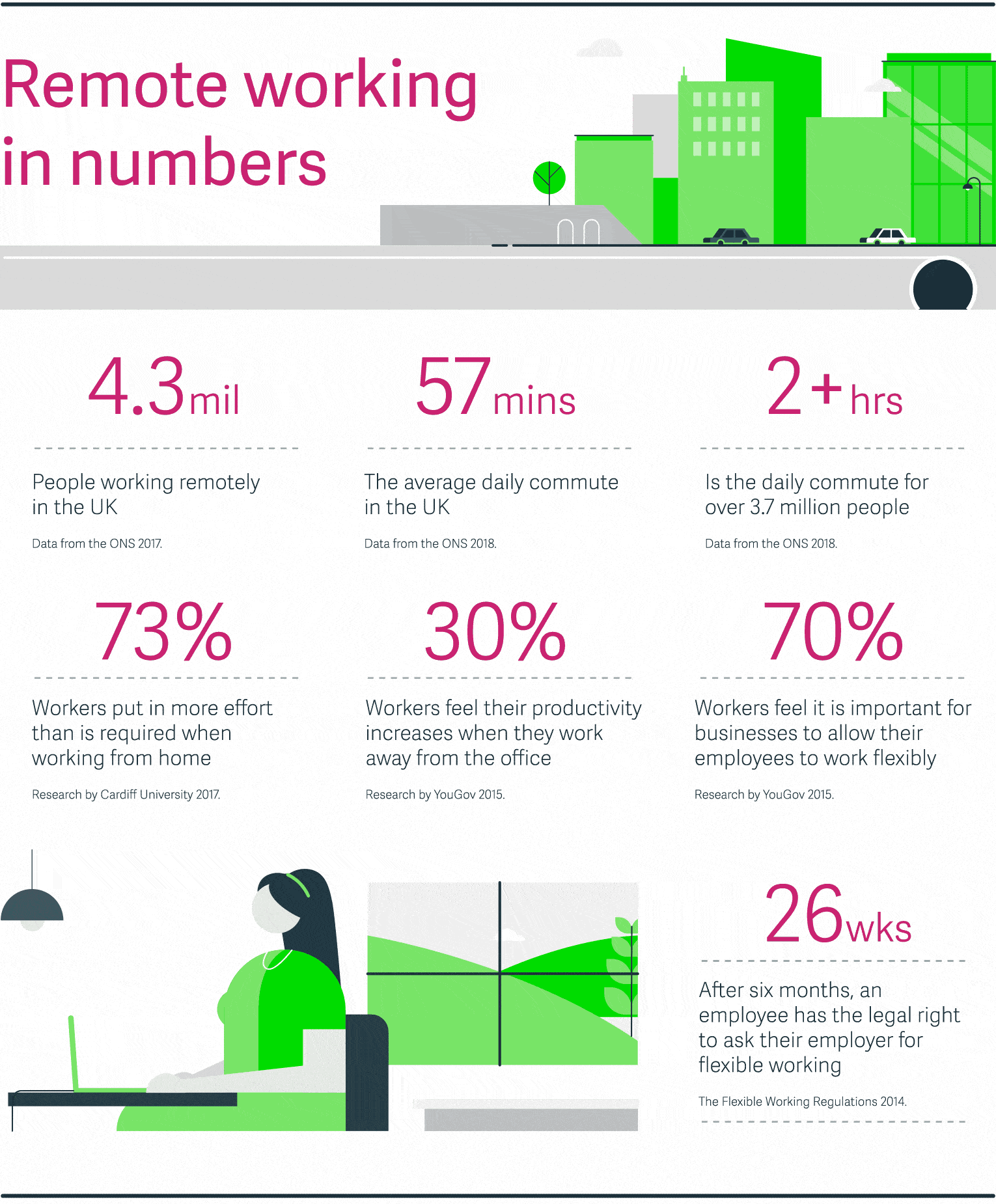Recently, the World Economic Forum forecasted that the trend for flexible working, including remote working and virtual teams, was set to become one of the biggest drivers for transformation worldwide. This trend has been embraced by companies and governmental bodies of all kinds. While trail-blazing tech companies such as Github, Basecamp and Microsoft all offer remote working, cornerstones of British life such as the Civil Service and Transport for London are praised by employees for their flexible working options. All of this means that it is well worth considering what these options could mean for your business, even if you’re operating on a much smaller scale.
Here Scott McLay from Sage highlights the benefits of having virtual teams and remote workers working for your small business.
Facts and figures
The average British worker has a daily commute of 57 minutes, while 3.7 million employees spend over two hours a day on their way to work. Meanwhile, out of the 4.3 million people in the UK who work from home, three quarters are highly experienced professionals working in some of the highest skilled areas of the economy. These remote workers report feeling 30% more productive when working away from the office, and 73% put in more effort than needed when working from home.

Why offer remote working?
It’s no surprise that working more flexibly leads to happier and healthier employees. Whether your employees are parents of young children, carers for elderly parents or have a long commute, offering remote working full-time or as needed can make a huge difference in the lives of your employees. This will, in turn, lead to a better work-life balance, more free time and an empowering flexibility. This all makes for more satisfied, loyal and productive employees.


Tips for building and managing a remote team
When it comes to leading virtual teams, it’s important to hire people who don’t require the kind of social setting a traditional office provides. It can also help to run some sort of a test project to see how well the candidate can manage their own time and communicate effectively through virtual channels.
It’s also very important to build and foster a good team culture. A ‘buddy system’ is a great way to integrate new employees into the team, and being mindful in the way you communicate in writing is key to avoiding misunderstandings and hurt feelings. It’s also very important to bring the whole team together in person regularly to build company culture and so that everyone can meet officially.
More on remote working mistakes to avoid and staying connected with remote employees.


Follow Company Bug